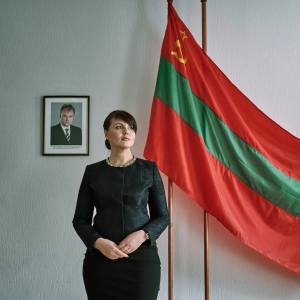The Feminist Initiative literally blazed onto the political scene and stamped its name on international headlines in 2010, when party leader Gudrun Schyman burned 100,000 Swedish krona on a barbecue at one of Sweden’s largest annual political events. For the last decade Feministiskt initiativ, or F! (with the ! representing an upside-down ‘i’) has sought to influence European politics. Now, with a member elected to the European parliament and significant representation at the local level in Sweden’s major cities, F! seeks to further expand its influence.
F! is a self-described ideologically independent, anti-racist, and pro-feminist party based in Sweden. Founded in April 2005, it seeks not only to advance feminist policies, but to also increase equality, accessibility and social justice. It has set its sights on challenging not just the Swedish political and social status quo, but to ultimately free Sweden and the world from discrimination.
F! leaders believe more feminists in political positions can create comprehensive sociopolitical change in Sweden and abroad. Within Sweden, F! has established the goals of gender-based wage equality, equally distributed parental leave for working parents of both sexes, a six-hour work day, a more transparent welfare system in which surplus is reinvested into the government, and new academic and extracurricular pedagogy that encourages youth to become more tolerant. Globally, feminist politics can encourage Sweden to assume greater responsibility in addressing issues that superficially may not seem to involve gender issues; for example, rich countries profiting off of poorer ones and the mass overconsumption of natural resources. This global role begins with opening Sweden’s borders to undocumented immigrants and creating a welcoming environment for existing refugees inside the country.
Feminist Initiative has already expanded its movement by starting a branch in Norway in early April. It will run candidates in the cities of Oslo and Bergen this fall. F!’s Norwegian branch is led by 27-year-old Cathrine Linn Kristiansen, who says the party will have male board members. Like the Swedish platform, Norway’s F! seeks to address non gender-specific issues with a feminist approach. However, the issues fueling Norway’s launch are more centered around issues that directly impact females, such as dissatisfaction with the increased power doctors have to refuse abortions, the gender pay gap, and domestic violence.
F! fell short of the 4% threshold percentage needed to win a Swedish parliamentary seat by about one percent in last fall’s election. However, since it garnered more than 2.5% of the popular vote, it is now eligible to receive tax-funded party financing for the first time. Mainstream parties should take note of the growth of feminist parties’ popularity and the importance of gender equality to Swedish voters. F! has already seen success on the European stage, when it successfully elected a MEP representative and Roma woman, Soraya Post. The Roma are one of Europe’s oldest and most discriminated-against minorities on the continent. One of the reasons F! was able to secure this seat was its catchy slogan: ‘Out with the racists – in with the feminists!’ The fact that F! can get a traditionally discriminated-against woman to represent them at the level of the EU shows promise for F!’s agenda to create a haven for asylum seekers in Sweden.
Sweden is not a hostile place for women, and is actually the most gender-egalitarian country in the EU, according to the European Institute for Gender Equality. However, as argued by Lena Wängnerud, a Political Science Professor at the University of Gothenburg, it is because of this background that the equality debate in Sweden is more radical and focuses more on the progress yet to come. Swedish feminists do not want to rest on their laurels when Swedish women continue to earn, on average, 14% less than men, make up only 25% of the members of corporate boards, and take out 75% of parental-leave days.
Some worry that feminist parties have to exist because mainstream parties have been neglecting feminist issues, and that the rise of parties like F! means that traditional parties will only become more apathetic. They believe these mainstream parties could develop a collective action problem in which feminist parties are seen as the only ones responsible for advancing feminist platforms.
Others believe that F! will only further inflame the anti-feminist rhetoric of extreme right-wing groups across Europe. While the latter is certainly possible, and such instances have already occurred, for instance when the UK anti-feminist party Justice for Men and Boys gave out “Lying Feminist of the Month” awards, the existence of these parties makes it seem even more important that feminist parties try to increase their presence on the political stage so that misconceptions and stigmatized views can be adjusted.
Indeed, F!’s MEP representative Soraya Post said that the popularity of the Feminist Initiative is a reaction to the growing right-wing movement. Some within feminist politics believe that bridging gender and socioeconomic divisions is the only way to stop the far right from taking over Europe. Post described feminists as the greatest enemy of the Fascists, and that F!’s mission was to encourage other women to create a feminist political party in their own country and run for office.
In the next Swedish parliamentary election F! could very well cross the vote threshold needed to garner a parliament seat now that it is gaining support from Sweden’s moderate left. Although it does not have representation in parliament, it does have strong support from the urban base of Stockholm, Gothenburg, Malmö and Uppsala, where it has vital footholds in large municipal councils. F!’s staff of professional politicians and activists with extensive grassroots experience will also benefit the party’s long-term growth.
F!’s growth does not aim for women to become more dominant than men. Norway’s F! branch will have male board members, and Sweden’s F! branch has male candidates for national parliament. This reflects F!’s interest for equality, not for the dominance of one gender over another. If F! can get male candidates to represent its interests, perhaps right-wing parties may become more receptive to F!’s platforms. That in itself is sexist, but that sexist view could well encourage the rise of equality, increased political communication and tolerance in Sweden and eventually, across Europe.





